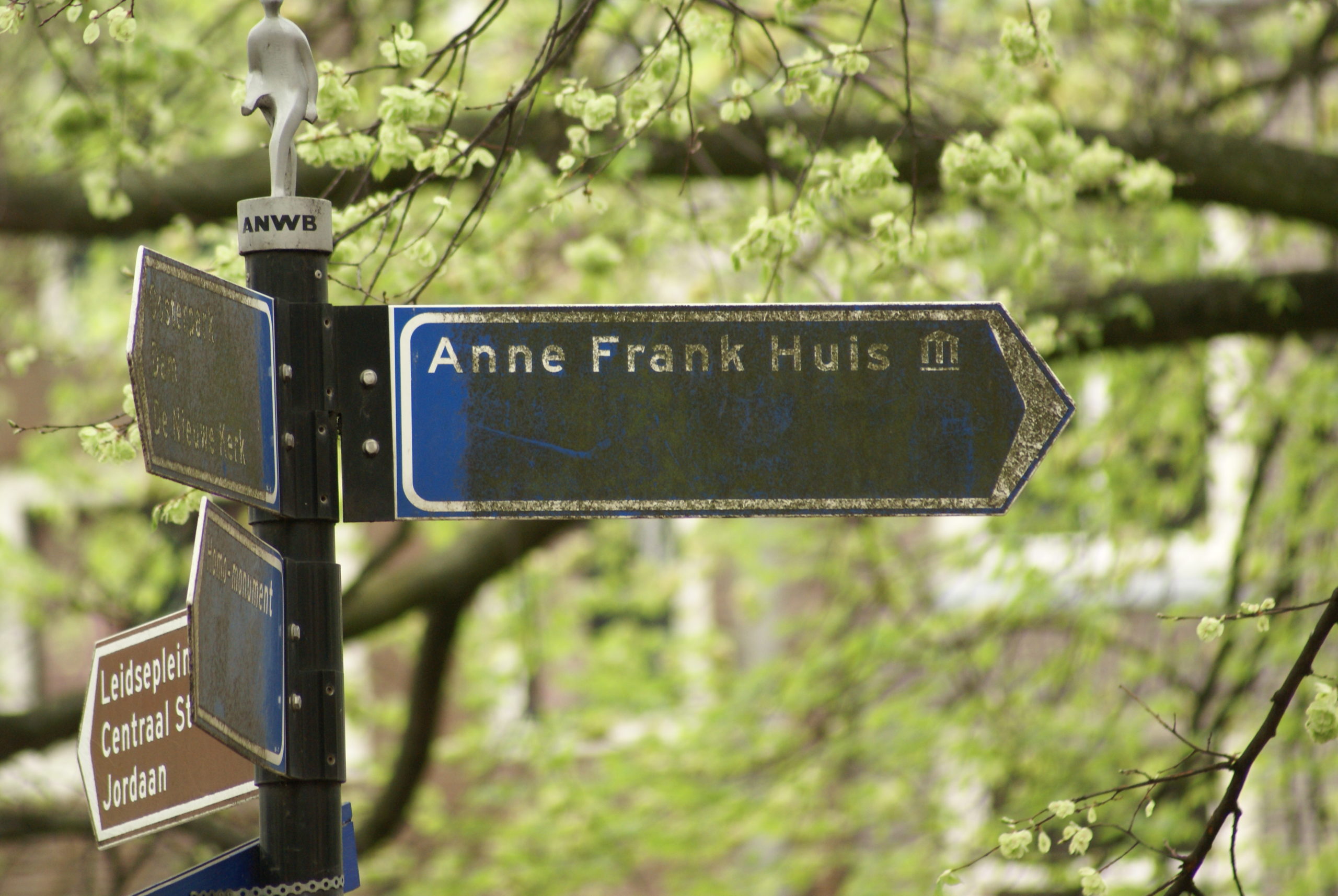
Losing My Anne Frank
My mother’s family held on to their German ways. Their German background manifested itself especially strongly in the kitchen. But they also continued to celebrate Christmas—which was, after all, a German holiday by way of England. As it was the German custom to have Christmas meals, give presents, and buy a tree on Christmas Eve, so it was the custom of my grandparents and my parents.
By the late 1930s, when my mother’s family could discover no living relatives in Germany, my mother and grandmother joined an organization to sponsor Jews trying to flee Hitler. My mother even received a letter (in German) from Albert Einstein after they (unsuccessfully) tried to save two mathematicians and their son.
So I knew about the Holocaust. It was part of my family history, and I felt both gratitude and guilt that I had been born in the United States – a sentiment I believe to be shared by virtually every American Jewish child of my age.
But reading about it as a child was not simple. The ton of memoirs and stories from survivors and their children which had appeared by the time my daughter Rebecca was a child didn’t yet exist. There were no movies or radio shows that I remember. In the 1950s, we were, as many have written, very concerned with being American—even as American a family as mine—and swept up in the universalism of the era. We had one book, one survivor: Anne Frank.
The story of Anne Frank had a huge impact on me as a member of a German-Jewish upper-middle-class family who wanted for nothing and who were on the one hand politically and socially Jewish but on the other totally alienated from Judaism as a religion. Being Jewish is more than religion; it means being part of a people and a history—what in Hebrew is called Am Yisrael, the Jewish people. As a child the holocaust was there, always there, but always distant. It was The Diary of Anne Frank that made it all real. Not the camps, of course, but the fears and the hiding and the drumbeat of threat. I remember reading the book so clearly. I must have been 10 or 11. I took it to bed with me to read at night, and after I shut off the light the fears and shadows of the book were like a fog wrapped around me, they crept inside of me and stayed somewhere in my body. With Anne Frank I knew, I knew, that I was Jewish and that I would remain Jewish, and that Hitler would not win. Anne Frank cemented my identity as a Jew. Reading her diary was an act of affirmation.
As an adult, I thought about her and her book less and less. I read more Jewish history. I sent my children to a Jewish nursery school and we joined a synagogue. Being Jewish became part of the daily pattern of my life, even as I struggled with the notion of God and becoming an atheist. The most recent books about Europe and fascism and the destruction of the Jews that have meant a lot to me are more like Timothy Snyder’s Bloodlands and Jeffrey Veidlinger’s In the Shadow of the Shtetl.
It is against that background that I visited the Anne Frank House. What I saw was an Anne Frank who is no longer a symbol of the destruction of the Jews and of the ever-present hatred of the Jews, but rather a generalized emblem of victimization, of the problems of power and authoritarianism, of the consequences of ordinary people being too afraid to speak up.
Portrayed in that light, Anne Frank seemed to belong to the world—but not to me. You may think this a very odd comparison, but let me compare Anne Frank for a moment to Queen Esther. Every year during Purim, Jews remember Queen Esther for saving the Jewish People. Purim became a very important holiday in the eyes of European Jewry because all the cycles of destruction and attempted destruction that they had experienced became folded into the Purim story. But Purim was and remains Jewish. There is no holiday celebrating Anne Frank, but all those visitors are commemorating Anne. Esther is particular, ethnic, and globally irrelevant. Anne is for everyone.
After visiting the Anne Frank House Museum, I felt a bit dizzy. Part of me loves that Anne Frank has become such a potent figure of dignity and the fight against oppression. But part of me experienced a loss – of a childhood figure who had once crept into my body as I lay in warm sheets falling asleep and told me stories that changed my life.



